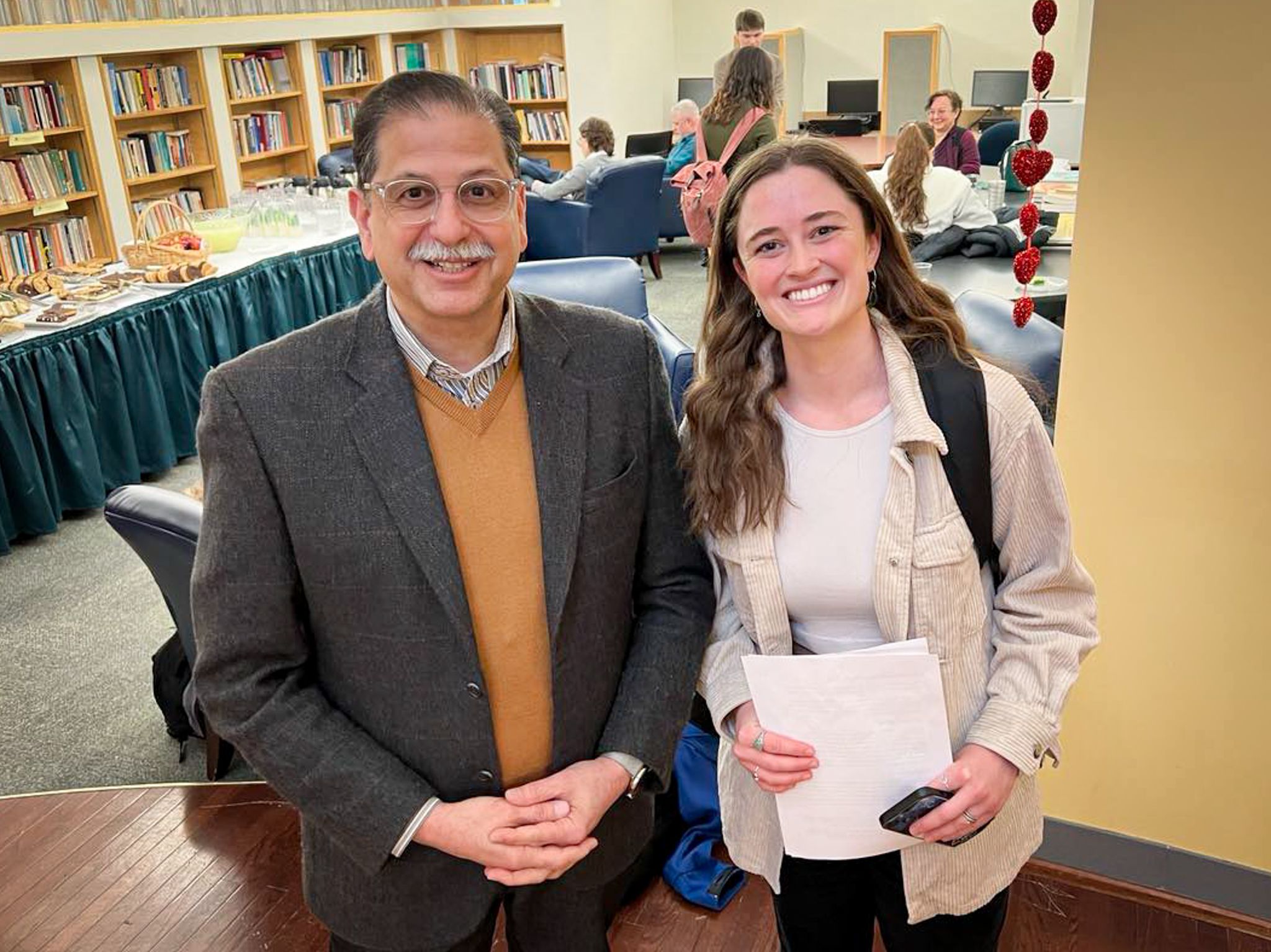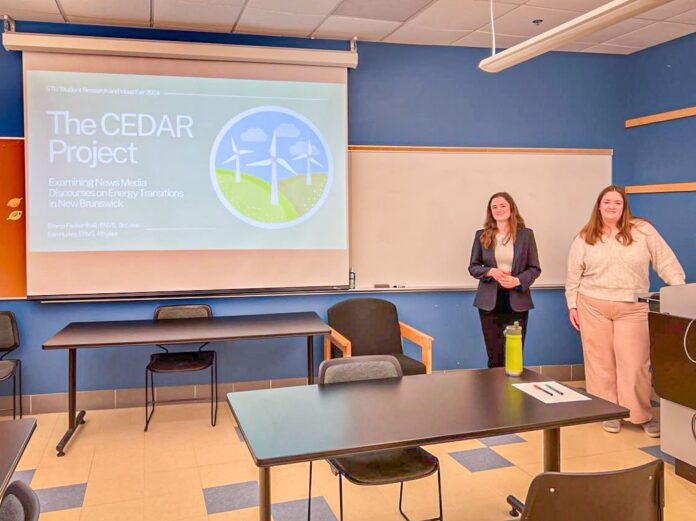Walking into the Rotunda at St. Thomas University, I was drawn to the long wall bookcase with glass squares above and a beautiful array of sandwiches, dessert cookies and squares on a decorated long, dark, blue-skirted table in Brian Mulroney Hall.
Research is undeniably tough. It demands a variety of skills, including data gathering, literature review, qualitative and quantitative analysis, writing and potentially sharing findings at events like the 2024 Student Research Ideas Fair (SRIF).
“You may be nervous about your presentations. Believe me, I’m nervous in delivering this talk right now. But you get used to it, right?” said STU president Nauman Farooqi in his opening remarks.
“Research is an essential element of academic life … Be assured that the hard work is already done and now you can enjoy the benefits of that hard work.”
The fair serves as an opportunity for students to present their projects and research to faculty, staff and other students. Multiple classes and topics were brought up during the fair, including media representations of criminal justice issues, cognitive psychology, political studies and the environment.
The students in Capstone Seminar: Environmental Studies I and II presented on different angles of climate change and environmental studies. Each of their presentations will be a chapter in a book on the sustainable transition to a better world.
One of those students is Erin Hurley, a fourth-year honours student in Environmental Studies, who tackled three presentations.

Hurley’s chapter is titled “Planting the Seed, Embracing Traditional Indigenous Wisdom in the Shift to Sustainable Food-Growing Practices.” In it, she embraces the Indigenous Theoretical Frameworks, which have a wealth of scientific understanding that is transmitted across generations.
“Food production is by far the most environmentally harmful activity,” she said, noting that buying food locally addresses climate change by sequestering our carbon and re-establishes our relationship with our ancestral heritage.
Her research questions include, “What would a more sustainable and just food system look like? Which food system models can inform us in this societal transition?”
Hurley has been in contact with Cecilia Brooks, Indigenous Foodways Instructor at the Hayes farm on the Northside of Fredericton and an elder of Wolastoqey, Mi’kmaq, Mohawk, and Korean descent.
Brooks specializes in traditional plant knowledge at The Hayes Farm, drawing from Wabanaki teachings to guide the farm’s activities and mission. She is also a member of St. Mary’s First Nation.
To Hurley, the solution is to transition from industrial agriculture towards sustainable and just alternatives in New Brunswick, such as buying from the Jemseg River Farm, Villeneuve, Gerber, Armadale and Adolph, to name a few.
Hurley was one of the students presenting her findings from the Capstone Seminar Course, including Molly Hansen, Quintina Northrup and Arabella Leblanc. Students gave a hopeful glimpse of the future in Canada.
With files from Giuliana Grillo de Lambarri.

